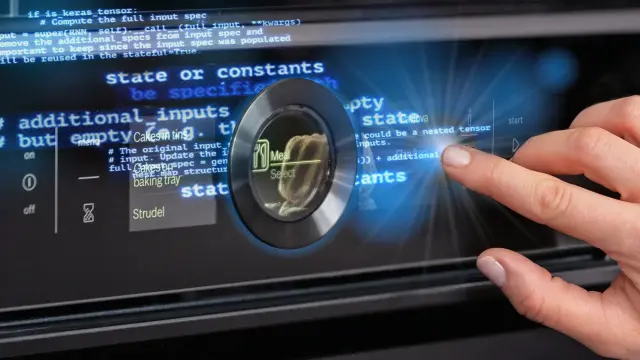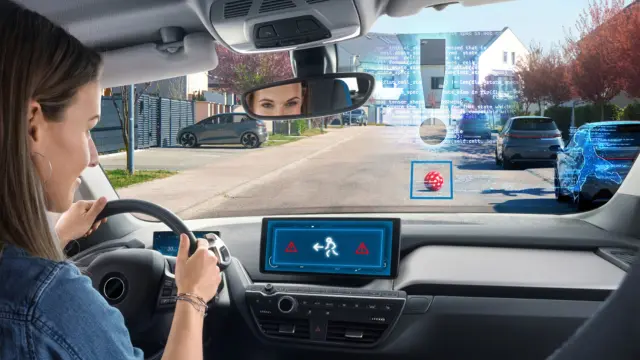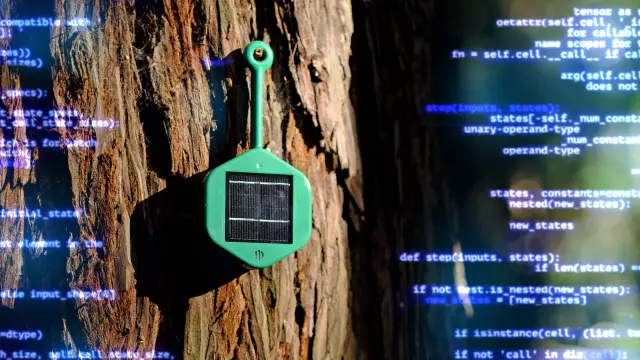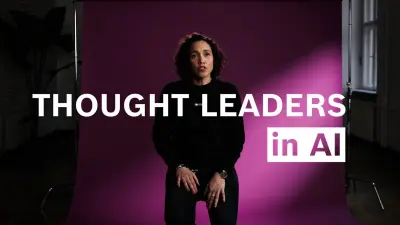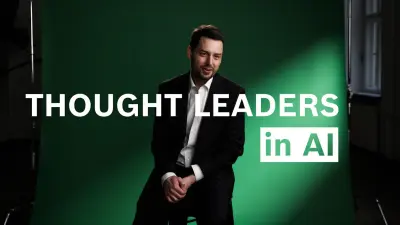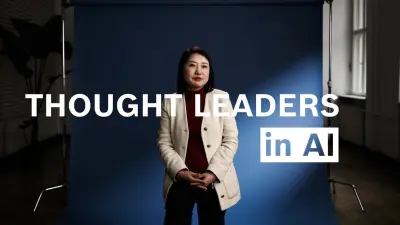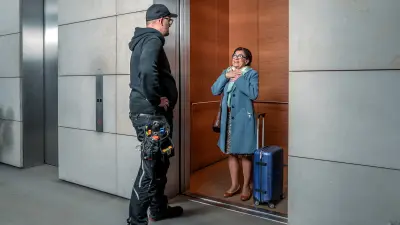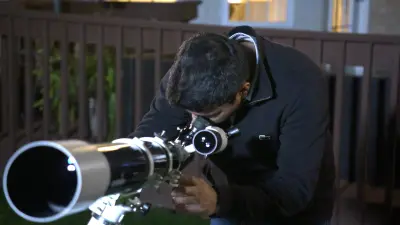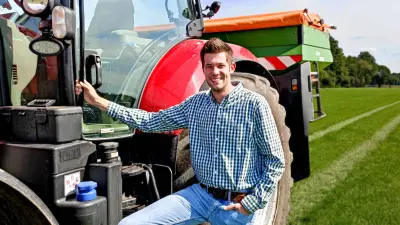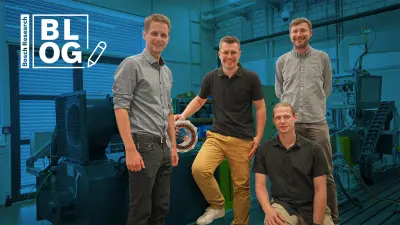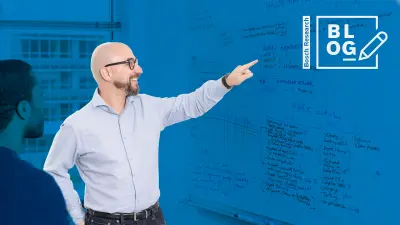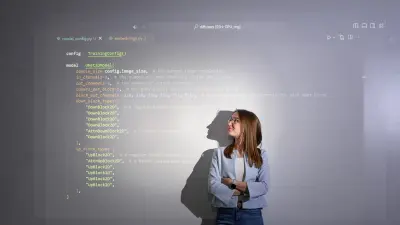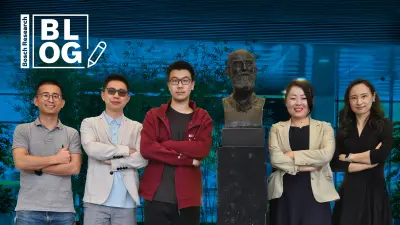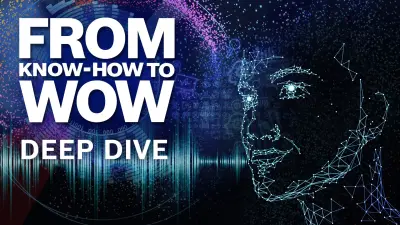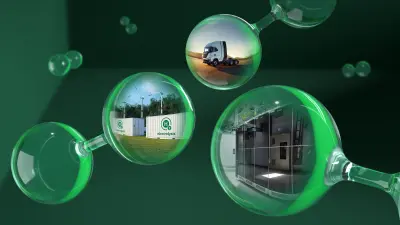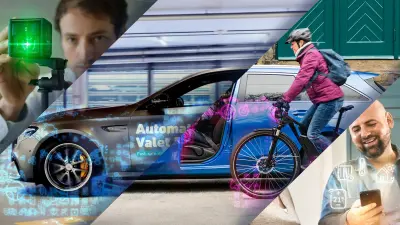Artificial intelligence at Bosch for a better future
How Bosch is tackling the AI challenges of the future
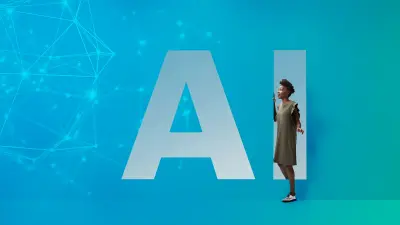
This year, the Bosch Tech Compass, a representative survey on the acceptance of technologies, examined the topic of artificial intelligence (AI) in seven different countries. This focus topic takes a look at the key findings of the analysis, while also highlighting how Bosch is already using AI to make the world a better place.
The world is not well prepared for AI! Or is it?
Since the epic victory of a chess computer over world champion Garri Kasparov in 1997, the development of artificial intelligence has accelerated rapidly. Today, this technology is making inexorable inroads into our everyday lives. AI is an opportunity for everyone and it is also a key technology for Bosch. The company has been working on AI-based products and methods for years. In 2020, Bosch introduced guidelines for the use of artificial intelligence in the development of products and services. The aim: to create intelligent and trustworthy AI products that live up to the motto of “Invented for life” and combine innovation with social responsibility.
In the past five years, Bosch has filed patent applications for more than 1,000 AI inventions making it one of the leading AI patent applicants in Europe. Machine learning is also becoming increasingly important in development and production. All Bosch products and solutions now contain AI or have been developed or produced with the help of AI. At the end of 2023, the company's internal AI search engine "AskBosch" went live, giving associates very fast access to a wide variety of data sources, such as those distributed on the intranet, via natural language queries.
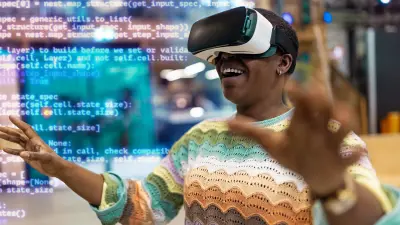
For 55% of global respondents, one thing is clear: AI will make the world a better place.
But what exactly is getting better? A closer look at the highlight products reveals it.
AI as intelligent as human beings? 61% think so. 39% doubt it!
And what are the thought leaders saying?
According to the Bosch Tech Compass survey, the global majority believe that AI can achieve the same level of intelligence as humans, but what happens if AI suddenly becomes more intelligent or creative than humans? At Bosch ConnectedWorld (BCW) 2024 in Berlin, thought leaders and visionaries from the world of technology discussed the prospects, opportunities, and challenges of increasingly intelligent and creative AI. We asked three forward-looking personalities to share their personal thoughts: Nicole Büttner-Thiel, Founder and CEO of Merantix Momentum, a consulting firm specializing in artificial intelligence; Zico Kolter, Chief Scientist for AI at Bosch; and Selina Yuan, Vice President of Alibaba Group, a Chinese trading group with one of the leading e-commerce companies alibaba.com.
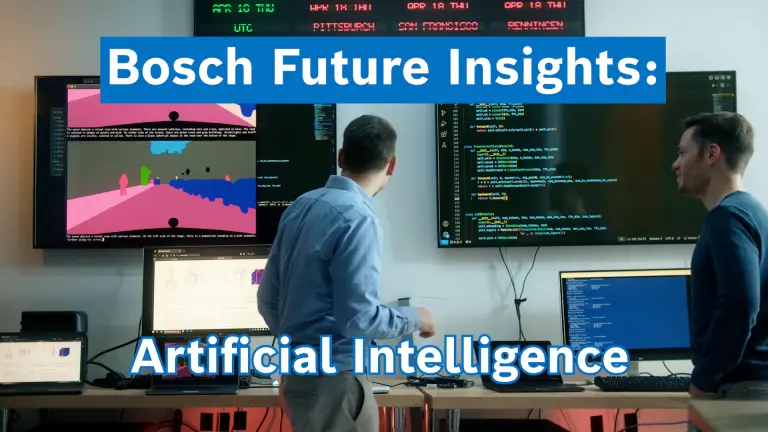
Loading the video requires your consent. If you agree by clicking on the Play icon, the video will load and data will be transmitted to Google as well as information will be accessed and stored by Google on your device. Google may be able to link these data or information with existing data.
Who actually says the future belongs to AI?
The areas of application give an insight.
According to the survey, all countries agree that AI will be the most influential key technology in the next ten years (64%). Innovations such as 5G (34%) and autonomous driving (22%) follow a long way behind. For Bosch, AI is no longer just a topic for the future. Whether it's research in space or ordering your home field, artificial intelligence is already an integral part of products and services today.
AI as a problem solver? More than 50% are convinced
For example, in the areas of technology and research.
Every day, people at Bosch work on technologies that not only improve everyday life but also protect the environment. In research at Bosch, AI is also helping to make innovations possible at a very early stage. Since 2017, researchers at the Bosch Center for Artificial Intelligence (BCAI) have been conducting basic research and creating the working basis for AI-based methods for the entire company. With the help of AI, they want to take the networked and digitalised world to the next level and make people's lives easier, safer and more convenient. To achieve this, they work in cross-functional teams and use big data from more than 230 Bosch plants around the world.
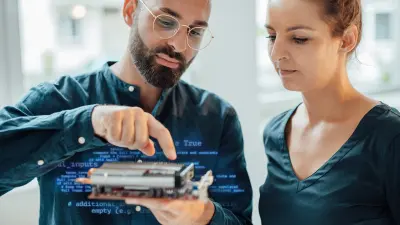
You can still laugh about AI
Ideally in the world of podcasts.
Admittedly, the survey context states: “If there were AI-powered robots performing stand-up comedy, 62% of respondents would attend such a comedy show.” The result shows that it would be a big step if artificial intelligence could understand and generate humor. After all, humor is a very human trait. Nevertheless, AI is getting better at making jokes and explaining where the punch line is.
Until AI is ready, Bosch presenters Shuko, Melena and Geoff, who produce the podcast “From KNOW-HOW to WOW”, will continue to provide entertainment and fun about innovation. Together with Bosch experts, they discuss how AI will shape the future. By the way, some podcast episodes use Geoff's voice avatar, which is continuously trained by an AI to become more like Geoff's real voice from episode to episode.
Jobs — join the team now!
If you want to actively work on artificial intelligence, Bosch is the right place for you. We are always on the lookout for AI experts. Our teams have vacancies for data scientists, machine learning engineers, software engineers, project managers and many other talented people.
Check out our global job opportunities or visit your local career website for insights into our application process and helpful tips.
Join the Bosch family and discover the exciting prospects the future holds for you.

